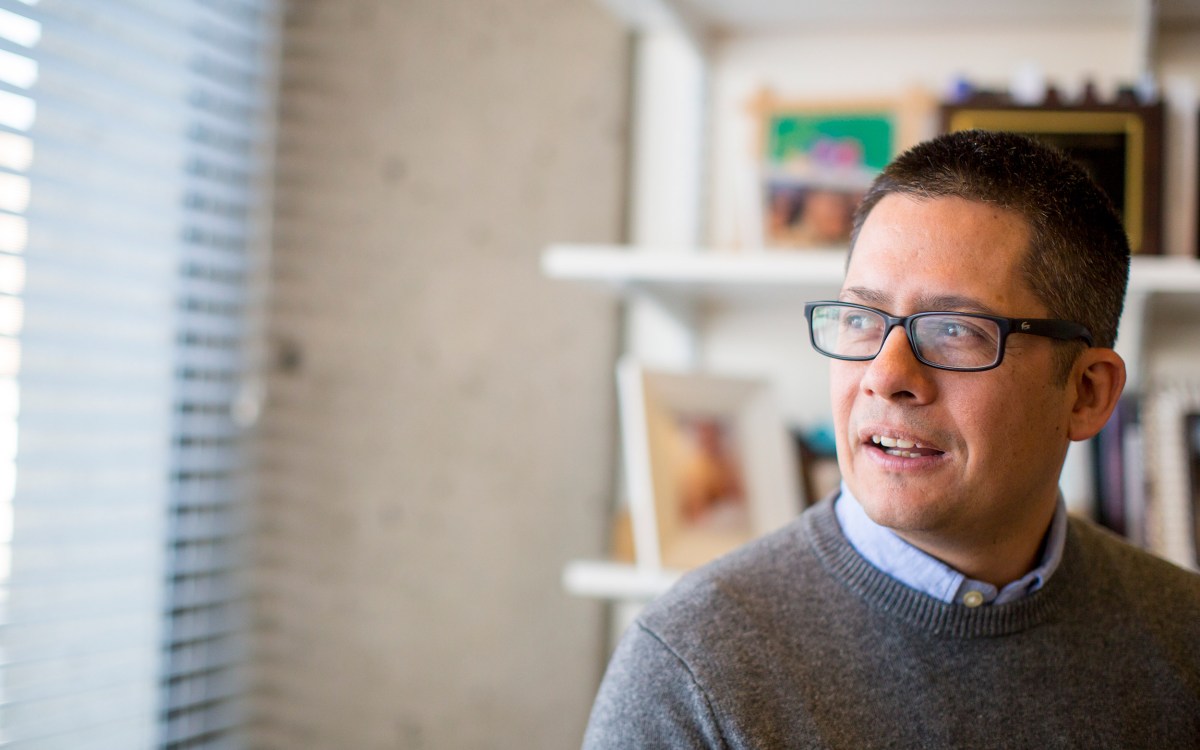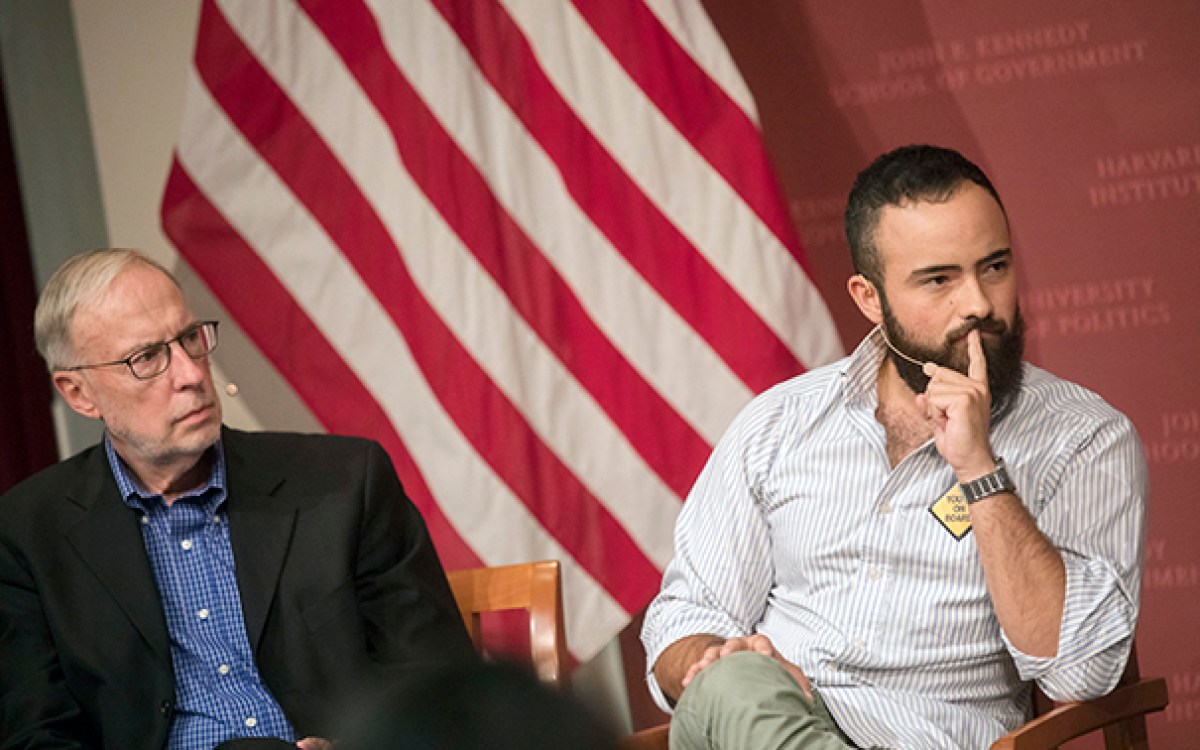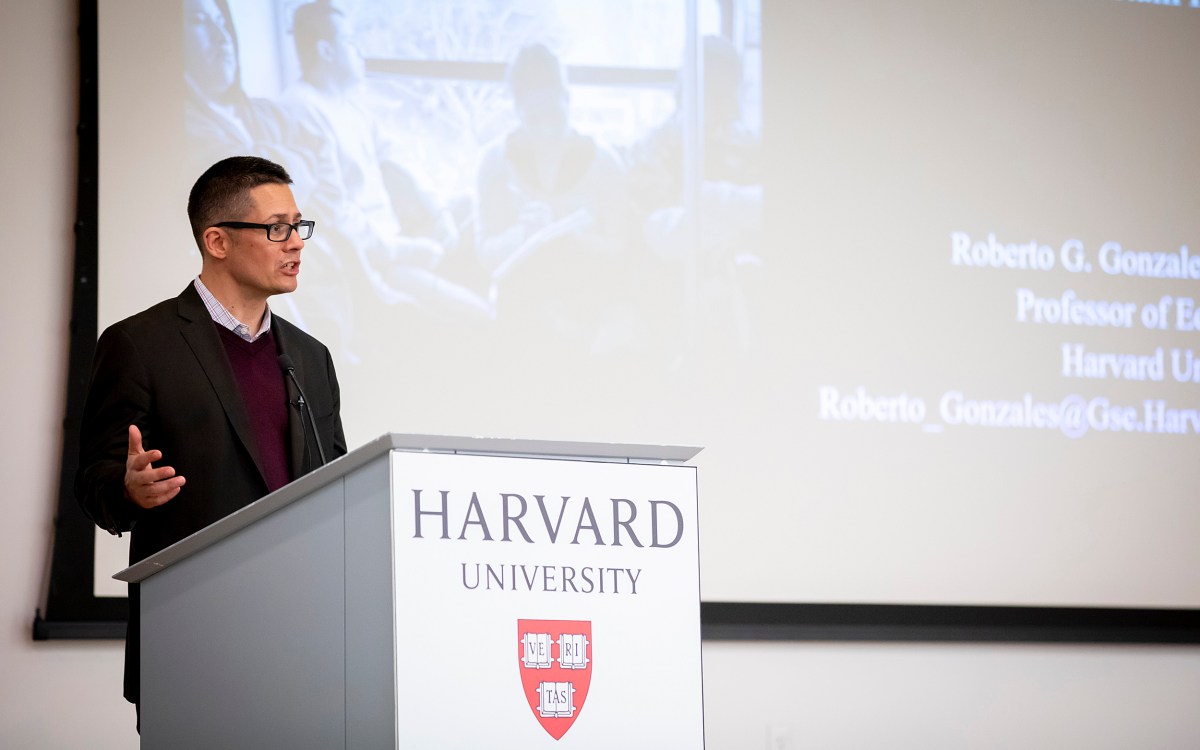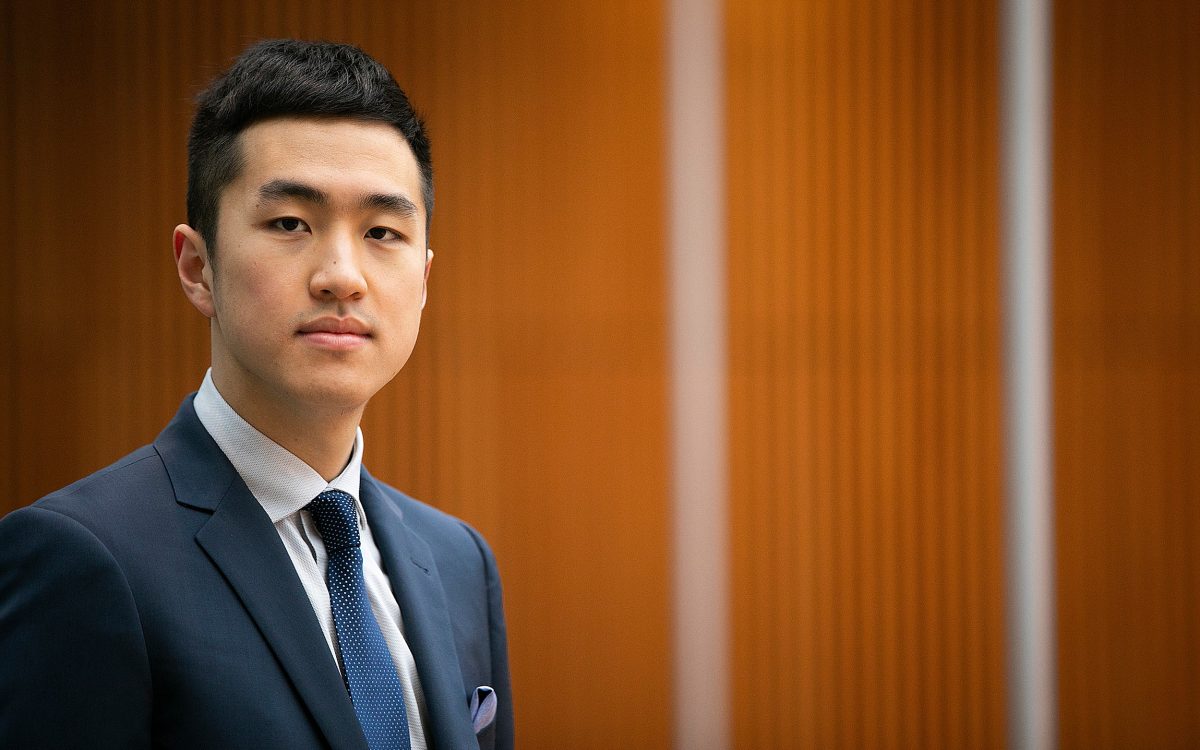Hundreds rally to defend DACA
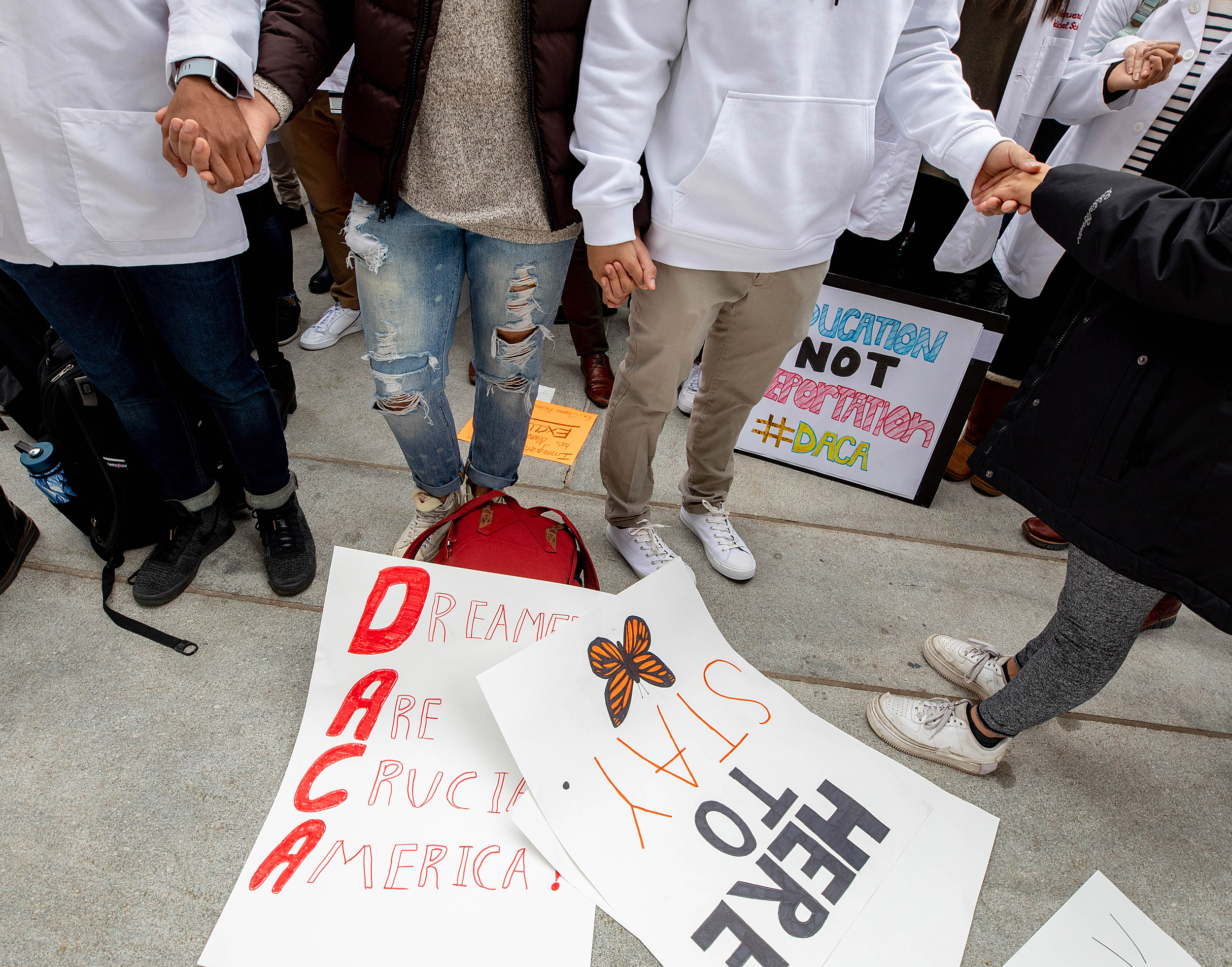
Rose Lincoln/Harvard Staff Photographer
Protest precedes Supreme Court hearings on program that safeguards undocumented students
A crowd of about 250 students, faculty, and staff gathered on the steps of Harvard’s Memorial Church on Veterans Day for a Defend DACA rally that was part of a nationwide student walkout. The attending, some carrying protest signs, listened respectfully as members of the Harvard community told their stories about DACA (Deferred Action for Childhood Arrivals) and TPS (Temporary Protected Status). Between speakers, there was applause and chants such as “Undocumented, unafraid. We are home and here to stay.”
On Tuesday the U.S. Supreme Court began hearings that are likely to decide the fate of the DACA and, with it, that of an estimated 670,000 DREAMers nationwide. The DREAMers are undocumented immigrants who arrived in the United States as children. The program allows them to continue their educations and to work. The issue has special resonance at Harvard, where DREAMers are a valued part of the community.
The future of DACA is in some doubt. The Trump administration moved to end the Obama-era program in September 2017, which could leave the beneficiaries subject to deportation. The Department of Homeland Security has since stopped accepting new applications from immigrants who would otherwise have been eligible. The Supreme Court hearings will consider the administration’s assertion that the program was unlawful, because Obama launched it without full congressional approval. If the court agreed with that argument, the program likely would be terminated. A ruling is not expected until early next summer.
Harvard was among the first universities to voice strong support for DACA students and has consistently backed efforts to find a permanent legislative resolution for DREAMers and individuals who are part of the TPS program.
Harvard Graduate School of Education Professor Roberto Gonzales is among those who have supported immigrants in their goals, conducting a seven-year study of young people who have who have had the protections offered by the DACA program.
In a question-and-answer session, Gonzelez discusses his new study here.
On Monday, he urged the Harvard community to stand behind those who are now at risk. “The stress and anxiety among our students is palpable, and the wait could not be more excruciating,” he said. “For those of you most affected, my words are to be kind to yourselves and each other. Now is not the time to make drastic decisions. I call on faculty to be lenient with due dates and to keep their office doors open. And for the rest of us, it’s time to listen.”
Other speakers took a more urgent tone. “No human being is illegal, especially on stolen land,” said a fourth-year student. “Even without [DACA], we are not going back.”
One DACA recipient, who studied at Harvard Medical School (HMS) and is now a fellow at Brigham and Women’s Hospital, reminded the crowd that doctors and other public servants are among those facing deportation. “As a child I was asked, ‘Why do you do this? Even if you graduate college, you will never be able to use your degree, so what is the point?’ DACA has made it possible for me to do what I love most, which is taking care of patients.”
A fourth-year HMS student and DACA recipient attended the rally flanked by about a dozen of her classmates, all standing up front wearing their class white scrubs and stethoscopes. “There are only a couple of us that are DACA,” she said after the event. “But as we’ve heard here, one of the important aspects of being a doctor is advocacy. We’ve invited a lot of our peers because they care about this very deeply — not just to support their peers, but the patients they will take care of as future doctors. Tomorrow’s hearing is the next step, but it’s not about waiting passively. It’s about continuing to promote activism, pursuing the candidates and questioning them about their policies.”
The rally was organized by the campus group Act on a Dream and had 21 co-sponsoring organizations. Some student organizers headed to Washington afterward to lobby members of Congress to uphold DACA’s provisions.



